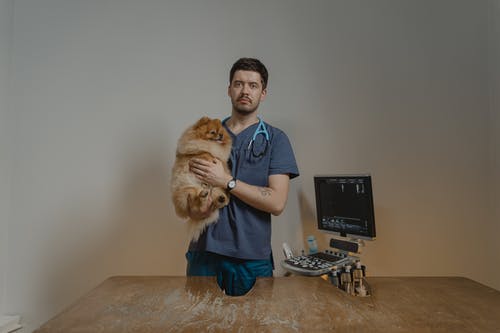As our furry friends step into their golden years, it’s essential to understand the changes in their health and lifestyle. Aging brings a flurry of changes, and it’s up to us to ensure their geriatric pet health remains top-notch.
This article explores beneficial routines, nutritional tweaks, and mindful practices to keep your senior dogs active, healthy, and happy.
Understanding the Physical Changes in Older Dogs
As they age, dogs go through various physical changes associated with the process. Awareness and understanding of these changes can improve your older pet’s comfort and quality of life.
Common Physical Changes
Recognizing the common physical changes in older dogs allows you to be more understanding of their actions and take steps to make their day-to-day lives more comfortable. Here are some of the most common transformations:
- Fur Graying: Similar to humans, dogs also have their fur turn gray with age, most notably around the muzzle and the face. Although graying fur is harmless, it is a useful sign that your dog is reaching senior age and may require tweaks in lifestyle care.
- Depleted Energy Levels: An aging dog may no longer have the same energy as their former puppy self. Reduced interest in physical activity, longer sleep intervals, and a slower pace are all common indicators of a dog’s growing age.
- Hearing and Vision Loss: Age can bring about sight and hearing impairments in dogs. This is often seen through behavioral changes such as failing to respond to calls or decreased coordination.
Health Issues Arising from Physical Changes
Aging not only brings about physical transformation but also exposes dogs to various health concerns. Awareness of these potential issues allows for early detection, timely treatment, and improved management.
- Arthritis: Senior dogs are particularly prone to developing arthritis, impacting their mobility and overall joy for life. Symptoms often include a reluctance to climb stairs, occasional limping, or difficulty rising from rest.
- Diabetes: Diabetes is another health risk for older dogs, resulting in excessive thirst, frequent urination, and unexpected weight loss.
- • Kidney and Heart Diseases: Aging often affects a dog’s heart and kidney function. Symptoms such as reduced appetite, frequent urination, coughing, or rapid breathing may be signs of critical heart or kidney conditions.
Keeping a careful eye on these changes and promptly seeking veterinary advice can ensure that your senior dog lives a comfortable and enjoyable life. Regular check-ups and blood screenings, in association with a healthy lifestyle, can significantly aid in maintaining your geriatric pet’s health.
Cognitive Changes in Senior Dogs
Signs of Cognitive Deterioration
Cognitive changes are equally important as physical ones. Disorientation, shifts in sleep patterns, and house training loss are common cognitive changes in senior dogs. Observing these changes can allow for timely interventions and prevent complications.
Mental Stimulation for Older Dogs
Despite the adage, dog owners can keep their senior dog’s mind sharp by providing regular brain challenges, like puzzle toys or games, and teaching new tricks. Regular interaction with other dogs can also be highly beneficial.
Pet Services
One important aspect of observing these changes is through regular cat & dog wellness exams. These comprehensive exams help track your pet’s health changes and catch potential health issues early.
Benefits of Regular Exercise for Pets
Why Regular Exercise is Important
Older dogs notably benefit from regular exercise. Working out can enhance mood, control weight, and improve sleep and energy levels, improving overall health and happiness.
Effective Senior Dog Exercises
Inside the umbrella of beneficial senior dog exercises are activities that engage them without demanding too much. Think gentle walks, safe swimming, or games of fetch designed for older dogs.
Keeping Senior Dogs Active
Promoting Physical Activity
To keep senior dogs active, consider having them visit dog parks regularly. These spaces offer safe and controlled environments where dogs can interact, play, and bond with their peers. Treat your dog to new toys regularly, catering to their changing needs and interests.
Boosting Mental Activity
Mental stimulation for older dogs goes beyond teaching tricks. Engage them in problem-solving activities and expose them to new experiences. This can keep those cognitive faculties engaged and agile.
Senior Pet Nutrition
Importance of Nutrition
Nutrition is critical in maintaining your pet’s optimal health and supporting their immune system. A well-fed dog can also better maintain a healthy weight and energy level.
Nutritional Needs of Senior Dogs
Senior dogs have unique dietary needs. They generally need fewer calories and high-quality proteins, antioxidants, and omega-3 fatty acids. For example, foods rich in Medium Chain Triglycerides (MCTs) have been found beneficial for older dogs.
Veterinary Specialists
Working with a geriatric vet specializing in senior dog care can significantly address your pet’s distinctive needs. They can provide specialized advice on nutrition, exercise, and overall care tailored to your pet’s needs.
Veterinarian Advice for Aging Pets
Maintaining Regular Vet Visits for Older Dogs
A vital component of elder dog care is regular vet visits. Routine check-ups allow weight and blood pressure monitoring and early screening for common diseases.
Advice on Care and Attention for Senior Dogs
Lastly, every senior dog requires extra love, care, and attention. Monitor their behavior for significant changes, and be patient and supportive as they navigate mobility difficulties.
Conclusion
Taking care of an aging dog is a rewarding but demanding task. It requires meticulous attention to their physical and cognitive changes. Keep them physically and mentally engaged, provide proper nutrition, and never miss regular vet visits. Your senior dogs can enjoy their golden years of happiness and health with love and care.

